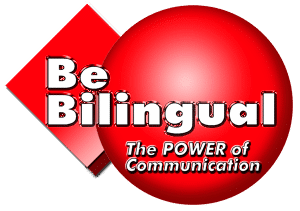Beginning a new year brings a sense of renewal and the opportunity to start over or resume many things that we may have delayed or postponed for the past 12 months.
Many start January by listing new purposes and goals, like traveling more, eating healthier, exercising regularly, etc. In particular, exercising (and dieting) is one of the most common New Year’s resolutions.
We can include one more: brain exercising, since the process itself -and its consequences_ are very beneficial. Just as we go to the gym to care for our bodies, we can train our brains by learning one or multiple languages.
The mental gymnastics involved in mastering a new language stimulate the brain, leading to increased neural plasticity and a more adaptable mind, resulting from the effort of regular training and challenges during the learning process. Bilingual or multilingual individuals show these
characteristics:
- Strong cognitive abilities,
- Improved problem-solving skills,
- Greater cognitive flexibility,
- Memory retention,
- Abstract thinking,
Mastering a new language forces the brain to become more efficient in processing information and to adapt more quickly to learning new skills, boosting confidence as individuals overcome challenges and barriers in communication, which in turn extends to readiness and willingness to acquire knowledge in various other domains.
It also encompasses a variety of cultural and social benefits that contribute to personal growth and a broader understanding of the world. The dynamic interplay of language, culture, and personal development provides insights into different ways of thinking, traditions, and perspectives, fostering empathy and cross-cultural connections.
It is impressive how a small decision like a New Year’s resolution can truly benefit our lives. Not only can it improve our cognitive health, but it can also positively affect our social and professional lives. It is quite a significant decision to make!
Pictures by Ketut Subiyanto and Andrea Piacquadio for Pexels

